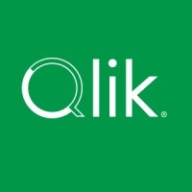

Pentaho Data Integration and Analytics and Qlik Replicate both provide strong solutions in the data management category. Qlik Replicate, with its superior performance and scalability, is preferred by large enterprises focused on real-time data replication. However, Pentaho's open-source model offers a cost-effective and flexible option for those beginning their ETL processes.
Features: Pentaho offers extensive database support, an intuitive graphical interface, and excellent big data capabilities, making it a preferred open-source ETL tool. It is favored for transform-heavy tasks and rapid prototyping. Qlik Replicate is praised for its change data capture (CDC) performance, efficient real-time replications, and robust database connectors, excelling in scenarios requiring minimal impact on source systems.
Room for Improvement: Pentaho users suggest enhancements in performance on big data, debugging, and the upgrade process. Other improvement areas include integration with modern technologies and error messaging. Qlik Replicate could improve replication speed, error reporting, and integration with APIs. There's also a need for more transparent pricing and additional features for flexibility.
Ease of Deployment and Customer Service: Pentaho's open-source availability offers versatility but can be challenging in large setups due to community-driven support. Qlik Replicate is easy to implement with good support, valuable for larger enterprises across cloud and hybrid environments. Both products could improve customer support and pricing transparency.
Pricing and ROI: Pentaho’s open-source model is cost-effective, suiting enterprises with budget constraints. It offers significant ROI by reducing ETL development costs. Qlik Replicate, although more expensive, ensures high ROI with its real-time data handling and functionality for large operations. Users acknowledge the value in its higher price in exchange for advanced capabilities.
I have seen a return on investment; my team was able to stay extremely small even though we had a lot of data integrations with many companies.
I can testify to the return on investment with metrics regarding time saved; we have increased our efficiency by about 20 to 30 percent due to the swift migration processes facilitated by the tool.
I conducted a cost comparison with the AWS service provider, and this option is much cheaper than the Kinesis service offered by AWS.
Customers have seen ROI with Qlik Replicate because they get their data for analysis faster, enabling quicker decision-making compared to traditional data sourcing methods.
24/7 assistance is available for the Enterprise Edition.
take the time to understand our business requirements, offering appropriate recommendations.
Communication with the vendor is challenging
Even priority tickets, which should be resolved in minutes, can take days.
Support response times could be improved as there are sometimes delays in receiving replies to support cases.
Having a technical account manager coordinate with us proved beneficial during these interactions.
It can be scaled well until you reach a point where you need to perform a lot of operations, and the issue arises when it runs out of memory to handle some data.
Pentaho Data Integration handles larger datasets better.
Pentaho Data Integration and Analytics' scalability is commendable, as it allows us to scale up according to our needs.
The system could be scaled to include more sources and functions.
We successfully scaled several of our Oracle RDBMS systems simultaneously, including PeopleSoft HR and our network access request systems.
Performance issues arise due to reliance on a flowchart-based mechanism instead of scripts, which can lead to longer execution times.
I find that version 3.1 is the most stable version I have ever used.
It's pretty stable, however, it struggles when dealing with smaller amounts of data.
We have tracked INSERT, UPDATE, and DELETE operations effectively, capturing pre-update and post-update images, maintaining real-time replicas of information without needing to reprocess requests or datasets.
We should also explore more effective partitioning for parallel processing and fine-tuning database connections to reduce load times and improve ETL speed.
Pentaho Data Integration and Analytics can be improved by working with different environments, specifically the possibility to change the variables, meaning I write my variables only once and can change them for different environments such as production or development.
I also lack the option to use programming languages beyond Python and SQL, and a provision to incorporate Scala code in the scripting component would be beneficial.
It is a core-based licensing, which, especially in the banking industry, results in the system capacity being utilized up to a maximum of 60%.
I believe that having updated documentation is crucial as we encountered a scenario while going through documentation that had not been updated since 2024, which introduced risks since we rely on accurate documentation for task imports and endpoint re-credentialing considerations before reaching out to customer support.
Qlik Replicate could be improved in the next release by incorporating more monitoring options to monitor the logs.
I use the community version of Pentaho Data Integration and Analytics, and I do not need additional costs.
The setup cost was minimal, and the pricing experience was pretty good.
Licensing is calculated based on the machine's total capacity rather than actual usage.
For Qlik Replicate, the setup cost includes the requirement of a server, which represents the hardware cost that must be covered.
Pentaho Data Integration and Analytics has positively impacted my organization because it meant we didn't have to write a lot of custom API back-end processing logic; it did the majority of that heavy lifting for us.
It automates the data workflow, including extraction, cleansing, and loading into warehouses for BI reporting purposes, while also removing duplicates, validating data, and standardizing formats, enabling real-time decision-making.
Pentaho Data Integration and Analytics has positively impacted my organization because it is easier to use, and my knowledge about this work facilitates the translation from the source to my final system.
The most valuable feature of Qlik Replicate is their change data capture feature.
The log-based CDC engine of Qlik Replicate is the most valuable feature for us. It reads our source changes directly from the database log, providing a lightweight approach that ensures our databases, such as Oracle databases, are not burdened with additional queries.
Data retrieved from the system can be pushed to multiple places, supporting various divisions such as marketing, loans, and others.
| Product | Market Share (%) |
|---|---|
| Pentaho Data Integration and Analytics | 1.5% |
| Qlik Replicate | 1.7% |
| Other | 96.8% |

| Company Size | Count |
|---|---|
| Small Business | 18 |
| Midsize Enterprise | 18 |
| Large Enterprise | 29 |
| Company Size | Count |
|---|---|
| Small Business | 9 |
| Large Enterprise | 11 |
Pentaho Data Integration stands as a versatile platform designed to cater to the data integration and analytics needs of organizations, regardless of their size. This powerful solution is the go-to choice for businesses seeking to seamlessly integrate data from diverse sources, including databases, files, and applications. Pentaho Data Integration facilitates the essential tasks of cleaning and transforming data, ensuring it's primed for meaningful analysis. With a wide array of tools for data mining, machine learning, and statistical analysis, Pentaho Data Integration empowers organizations to glean valuable insights from their data. What sets Pentaho Data Integration apart is its maturity and a vibrant community of users and developers, making it a reliable and cost-effective option. Pentaho Data Integration offers a range of features, including a comprehensive ETL toolkit, data cleaning and transformation capabilities, robust data analysis tools, and seamless deployment options for data integration and analytics solutions, making it a go-to solution for organizations seeking to harness the power of their data.
Qlik Replicate is a data replication solution for replicating data from one source database to another for business intelligence software. It offers data manipulation and transformations, replication without impacting source databases, and ease of use without needing ETL. The solution is stable and user-friendly, with detailed logging and support.
Qlik Replicate has improved the organization by allowing each team to replicate their data into a single-source data location. The most important feature of Qlik Replicate is its ability to replicate and update records without needing a programmer.
We monitor all Data Integration reviews to prevent fraudulent reviews and keep review quality high. We do not post reviews by company employees or direct competitors. We validate each review for authenticity via cross-reference with LinkedIn, and personal follow-up with the reviewer when necessary.